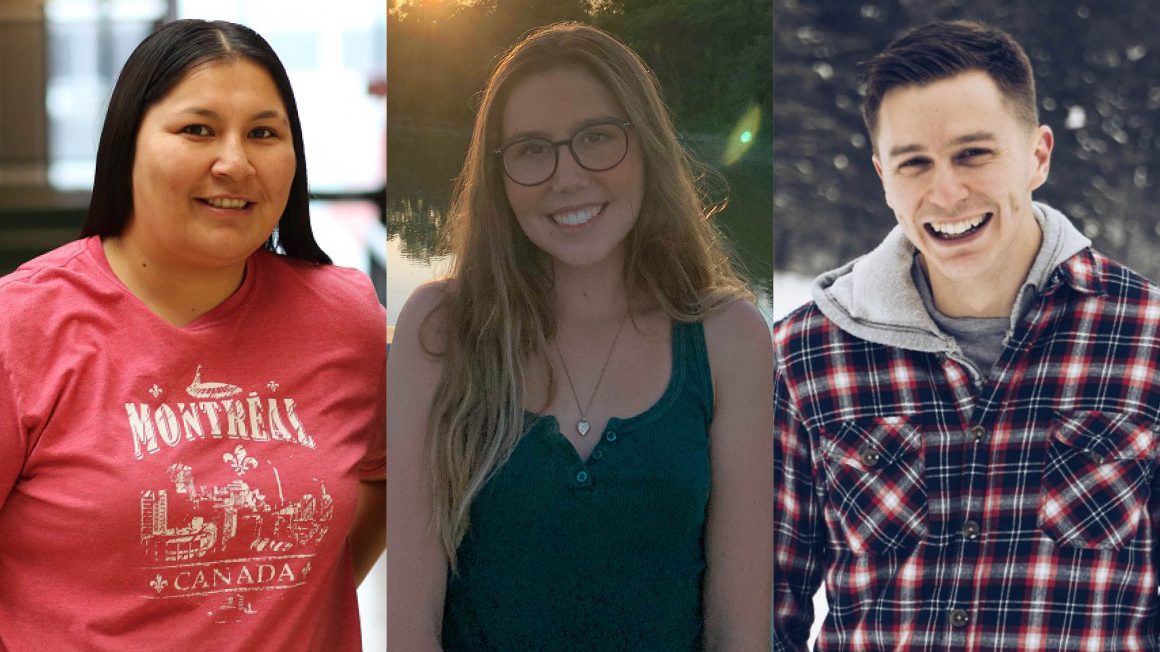The Pathway to Graduate Studies (P2GS) offered five Indigenous students the opportunity to instruct Indigenous students in science, technology, engineering, and mathematics (STEM). Melissa Anderson, Sean Hansen-Romu, Sidney Leggett, Josh Swain, and Hannah Tuckett all have diverse interests but have a common commitment in the pursuit of science in a range of disciplines, and sharing their knowledge.
The program prepares participants for senior undergraduate and graduate studies science courses and research while connecting with students of similar backgrounds and interests to form a network that includes graduate students and faculty.
“P2GS instructors are bright students that the scholars enjoy learning from,” said physicist Dr. Melanie Martin, who holds the NSERC grant that funds the program and who has worked with many of the P2GS scholars including Leggett. “They inspire their Indigenous colleagues by example, knowing they too can be as successful. The experience for both scholar and instructor is an asset that is reflected in their academic success and commitment to research.”
Meet Swain, Leggett, and Anderson
Swain, Leggett, and Anderson are accomplished and engaged students and Natural Sciences and Engineering Research Council of Canada (NSERC) Undergraduate Student Research Award recipients. They are also involved with .caISES, a campus group that supports Indigenous students in science, technology, engineering, and mathematics.
Swain is a Métis McCall MacBain Scholar. This was his second year facilitating the biology module for P2GS which he co-facilitated with his colleague Tuckett on the core principals of biology and touched on the most important topics.
“It was so much fun,” said Swain. “Even over zoom, the students were engaged. We let them open up each day with a quick 30 second- one minute presentation relating to that day’s topics.”
Swain heads to the University of McGill this fall to pursue a MSc in Public Health.
Métis computer science student Leggett taught a crash course on ‘statistical programming in R’. This is a skill she has utilized and found extremely useful throughout her courses at UWinnipeg.
Leggett was also a P2GS scholar in 2019 and found it be a life-changing experience.
She noted, “the experience gave me so much confidence. I was originally struggling in my early years of university. I didn’t believe I was capable of getting my degree. Then I meet so many peers and supportive faculty who helped me learn that I can do anything I put my mind to.”
Leggett has also been part of several research projects at UWinnipeg such as PET/MR Simultaneous Imaging with physicist Dr. Melanie Martin; Digitization for studies of neutrino pileup in water Cherenkov detectors with Dr. Blair Jamieson; and Lowering detection limits of rare earth elements with Queens University’s Dr. Matthew Leybourne.
Anderson is a veteran P2GS instructor finishing a third year of teaching. She taught and reviewed algebra this year introducing a large number of the problems with an introduction to derivatives and integrals, which provides the participants with a sample of calculus.
“I really enjoy being an instructor for the program and appreciate the opportunity to gain experience,” said Anderson. “Since calculus is one of the more challenging courses, I would like to think it helps put them at ease for when they decide to register for it.”
Anderson graduated in 2020 with a Bachelor of Science in Physics, Honours and is now working on a MSc at UManitoba.
“Once the program has been completed, the instructors have established a positive mentoring relationship,” said Jeff Booth, Coordinator/Academic Advisor, Aboriginal Student Services Centre. “Both scholars and instructors may continue their research, and develop networking opportunities like .caISES, and encourage each other to pursue graduate level studies in a science related field.”
This program is made possible thanks to a grant funded through the Natural Sciences and Engineering Research Council of Canada (NSERC) PromoScience program with matching contributions from UWinnipeg’s Faculty of Graduate Studies, Research Office, and Aboriginal Student Services Centre.

